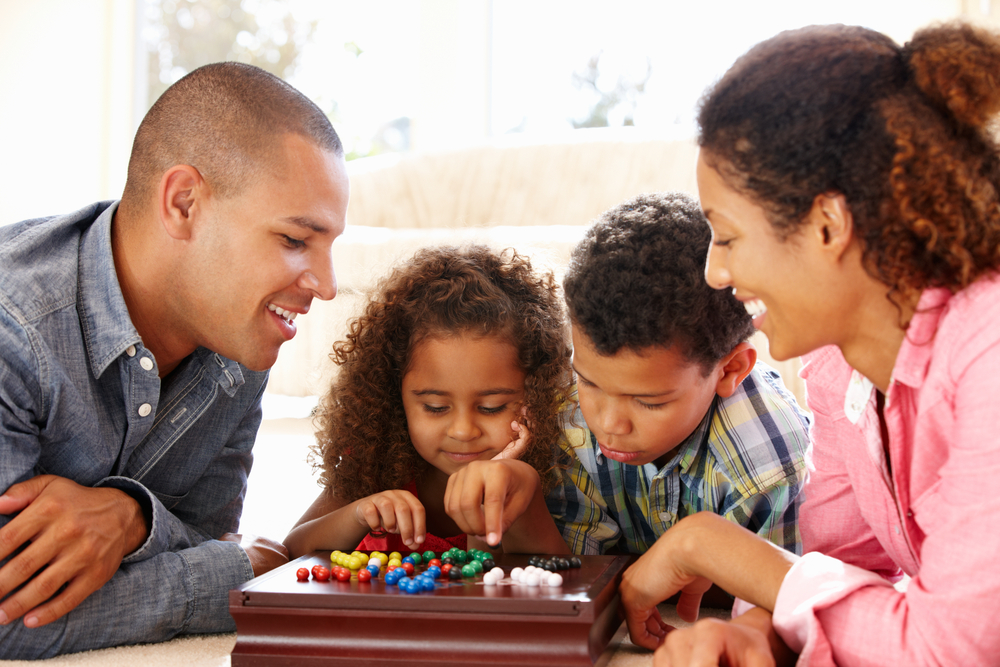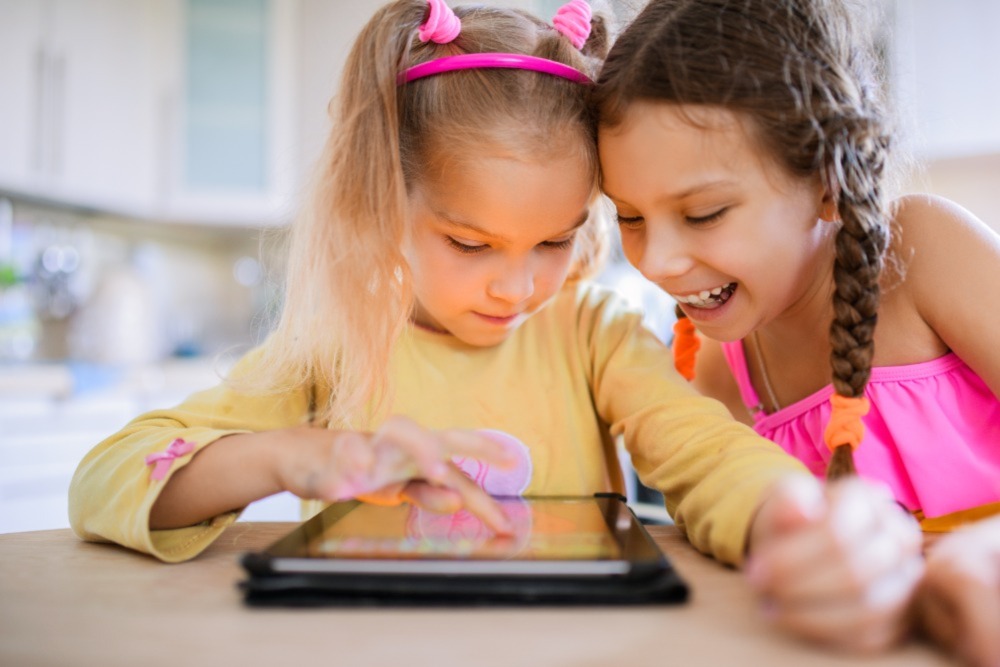How to Bring More Gaming Fun to Your Homeschool Routine
An Introduction to Gameschooling
We all want our kids to enjoy learning. But traditional approaches to learning aren’t exactly set up for fun. As a student, you don’t get to choose the course of study. And then you’re presented with worksheets and facts to memorize — often ending with a test.
But learning doesn’t have to look this way.
Whether you’re looking for a new homeschooling style, or to add more fun learning time to your afternoon and weekends, Gameschooling may be the answer. It’s a great way to add a little excitement to your child’s day, level up their learning, and enjoy time together as a family. Let’s explore Gameschooling!
What is Gameschooling?
Gameschooling has exploded in recent years as a growing homeschooling trend. And it is exactly how it sounds — you play games with your child to help them learn.
For some families, this looks like board games and tabletop games. Families may choose to approach this style screen-free. But others embrace games in all of their forms — like apps and video games.
Gameschooling is flexible (a definite plus in the world of homeschooling). You can personalize it to match your family’s preferences, interests, and age levels.
Do I have to homeschool to enjoy Gameschooling?
Gameschooling has grown in popularity in the homeschooling community, but you don’t have to homeschool to enjoy the laughs and learning that come with Gameschooling.
Family board game nights have been happening for years. And that is a perfect example of Gameschooling.
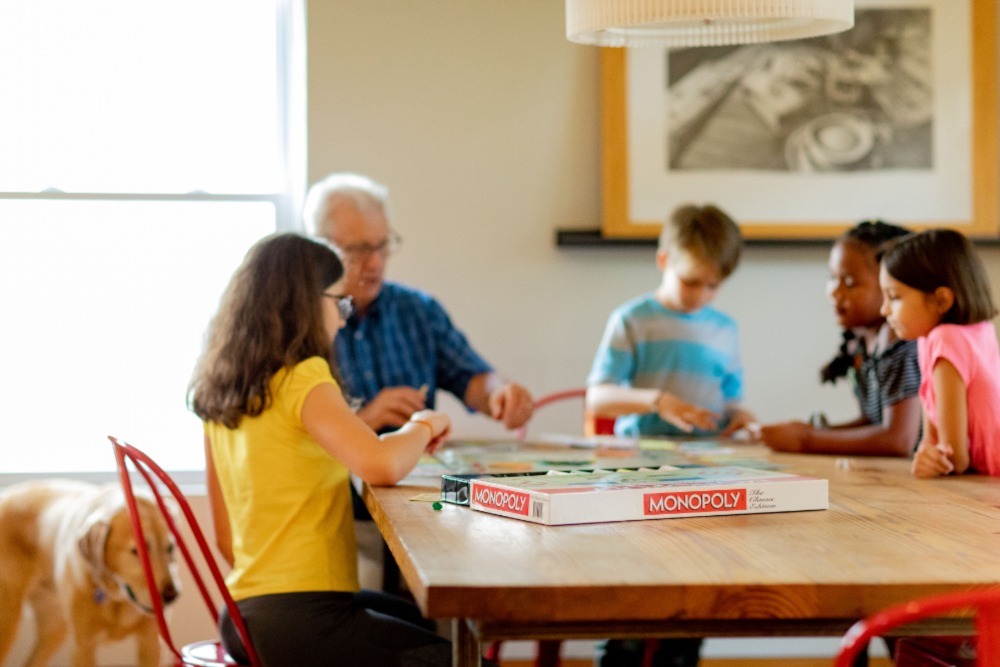
Board games are a great way to learn through play.
You don’t have to play only “educational” games. The learning doesn’t have to be obvious or spelled out for you on the box. One important tenet of Gameschooling is that games have educational value built right in. And when you can shift your mindset and look outside the standard educational box, you’ll begin to see learning everywhere.
Everything gaming — from preschoolers exploring Uno to pre-teens playing Among Us and our big kids rolling dice in Dungeons and Dragons — brings learning value. From basics like colors and numbers to complex strategy and storytelling, games have it all and more.
5 Benefits of Gameschooling
1. Family Bonding
Creating a strong family bond is a priority for many parents. You spend hours every day with these little people you are raising. And you want that time together to be pleasant, or even better, fun.
Playing games together creates strong memories. Whether you spend the time laughing or consoling your child because you beat them again in Mario Kart, these are the moments you’ll all remember for years to come.
2. Social Skills Practice
From teamwork and cooperation to learning how to lose gracefully, social skills are a must in gaming.
Even in the most basic of games, there are rules to follow. Even if the players set the rules themselves. In other games you have to navigate tricky social situations, reading body cues or even deceiving others to win.
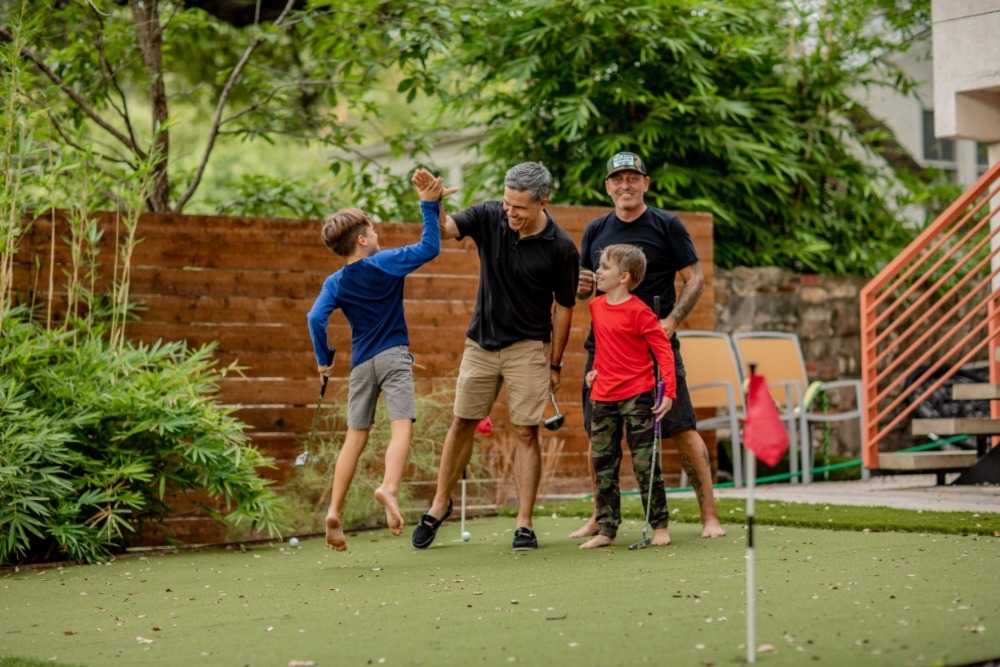
Games help with learning social skills – like how to win or lose.
Gaming creates social interaction, whether you’re on the playground, around the kitchen table, or interacting on your screen.
3. Critical Thinking Development
Many games require strategy. The complexity of that strategy depends on the game and the age level of the players. But even simple, language arts games, like Apples to Apples, require some planning ahead.
4. Academic Skills Practice
Preschoolers and elementary kiddos will get a chance to work on their reading and basic math skills in almost any game. And the best part (especially for anxious early readers) — games take the pressure off.
Rather than sitting down to work through a chapter book your child has little interest in, play a game together! They’ll be able to work on their skills, and you’ll get a clearer picture of where they are in their abilities. Just watch and observe, and you’ll find the learning.
5. Relaxed Learning
School can be a source of anxiety for many kids. There’s a lot of sitting still and listening. And, of course, all the testing. For a lot of students, school is simply not the best environment for learning.
But playing games at home or with friends is fun. It’s a great way to release stress. And because it’s relaxed, the learning sticks.
What counts as Gameschooling?
So many things! At the very core, Gameschooling is play. So if you and your child are playing together, you’re experiencing Gameschooling.
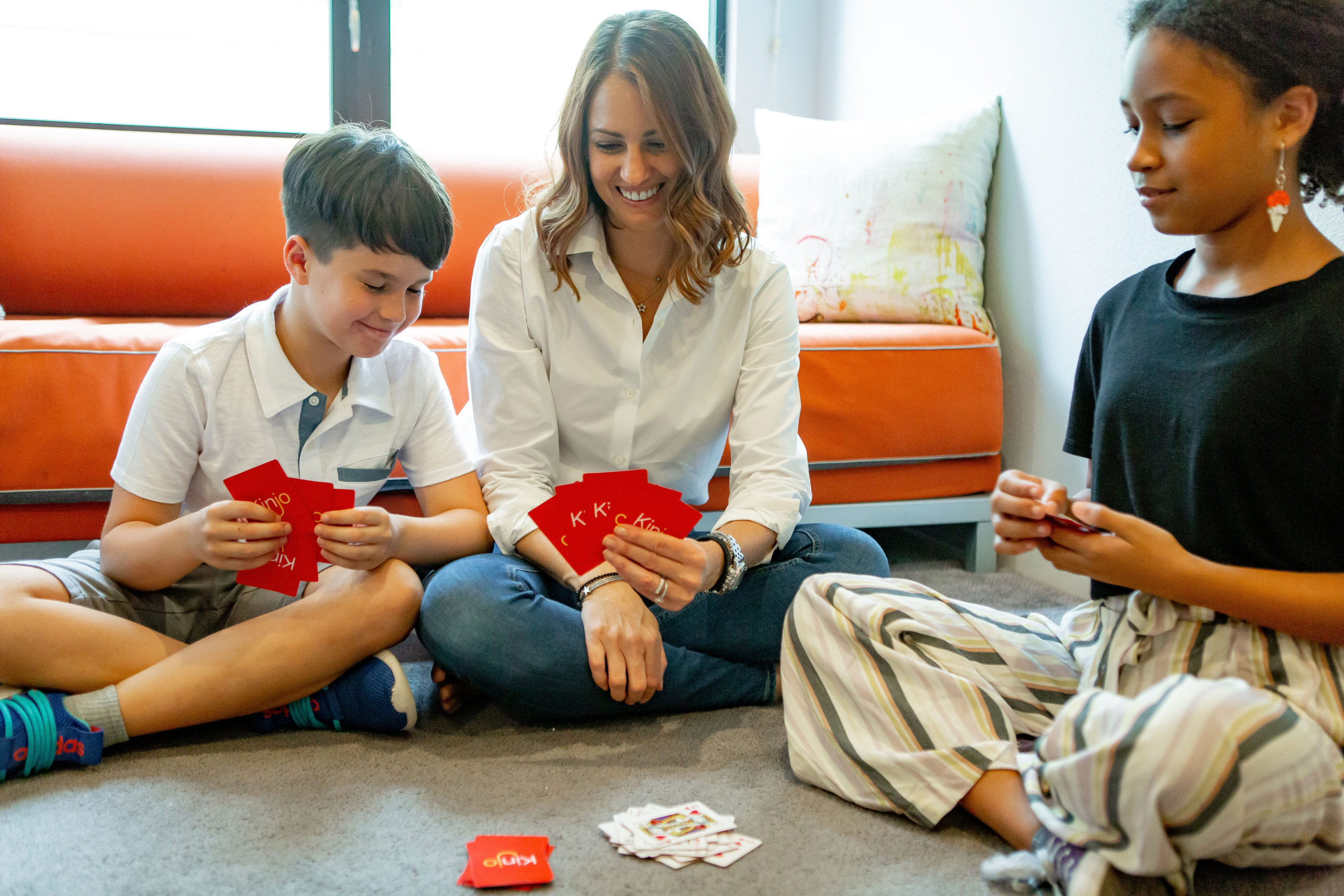
Math and strategy practice don’t only happen in the classroom.
But many families choose to take a more structured approach to this learning style. Some curate a collection of “educational” board games. Others mix gaming time with worksheets and lessons. Some allow (or even encourage) video game play, while others go screen-free.
As mentioned before, Gameschooling is flexible. Check out a few of our favorite Gameschooling options below and give one a try. You’re bound to find a perfect fit for your family.
1. Card and Board Games
From Pictionary to Monopoly and Sorry to Clue, board games are a blast! And new favorites are hitting the shelves every year.
Take a stroll through your local, big-box store’s gaming aisle with your child and check it out.
- Do you want to focus on language skills? Try Bananagrams.
- Looking to enhance their math skills? Check out Qwirkle.
- Want to encourage critical thinking and cooperation? Play Hoot Owl Hoot!
No matter the skill you’re looking to grow, there’s a board game to help!
2. Tabletop Games
Dungeons and Dragons has recently experienced a resurgence thanks to Stranger Things. But for many players, this classic never went out of style. Part storytelling, part strategy, and part role-play, D&D is a fabulous way to play and learn together.
Not a fan of rangers and elves? D&D is not your only option! Explore unsolved mysteries in Bubblegumshoe or fly into the Wizarding World with Broomstix. And with a quick Google search, you can find many, many more. Find a favorite, grab your 20-sided die, and get playing!
3. Video Games and Apps
Just like the other options above, there are a huge variety of video games to choose from! Some lean more educational, like Prodigy Math Game. Others can feel more like a brain break. But most games have some learning built right in.
Whether you’re playing Candy Crush on your phone, your child is playing their favorite Roblox game on their tablet, or you’re all crushing Mario Kart on the family TV, video games are a fun way to laugh and learn your way through the day.
Curious what your child is actually learning while playing video games? Explore our blog to discover the inherent educational value of video games. It’s amazing what your child can pick up through play!
4. Sports
Is your child involved in a team sport? These activities are a great example of Gameschooling!
Sports have set rules and most often involve loads of teamwork and cooperation. As long as your child is excited to participate, joining a sports team is a great way to add more learning to their routine.
5. Schoolyard Games
Whether it’s Capture the Flag, hopscotch, or just playing house, kids naturally gravitate towards games. Kids learn through play, building physical, social, and cognitive skills all along the way.
Use Kinjo to Bring More Gameschooling to Your Family’s Day!
Do you love the idea of Gameschooling, but wonder about which video games and screen time actually have learning? Check out Kinjo!
With Kinjo, your child can discover the best games on Roblox for learning and skill-building. No more wading through millions of mediocre, mind-numbing games. Instead, Kinjo suggests a carefully curated list of Roblox games your child will love to play. And then rewards them with Robux for choosing these games over the others.
Kinjo is the perfect mix of intrinsic and extrinsic rewards, Gameschooling, and learning time. And that’s a definite parenting win!
Want to learn more? Explore the ins and outs of Kinjo here.



